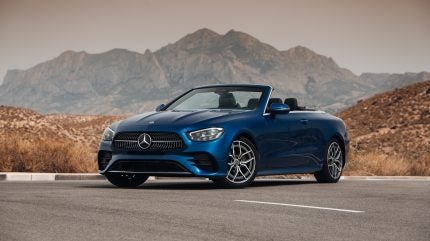
Mercedes-Benz is making strides in reducing the environmental impact of its electric vehicles (EVs) by incorporating low-carbon aluminium into the production process, Reuters reported, citing executives.
The initiative is part of the luxury automaker’s broader strategy to decarbonise its operations.

Discover B2B Marketing That Performs
Combine business intelligence and editorial excellence to reach engaged professionals across 36 leading media platforms.
The aluminium, which is sourced through a collaboration with Norsk Hydro, a Norwegian metal producer, is utilised in the construction of Mercedes-Benz’s new electric CLA model.
Executives of both companies told the news agency that the collaboration serves as an illustration of how premium consumer goods manufacturers are prepared to incur higher costs for raw materials to achieve a greener image.
Gunnar Guthenke, vice president of Mercedes-Benz’ procurement and supplier quality, said: “There are of course extra costs from using an especially low-carbon steel or aluminium.
“Sustainability and desirable products, such as the ones we produce, simply go hand in hand,” he said.
The companies chose not to disclose a detailed cost analysis but stated that the production of the new CLA resulted in a 40% reduction in CO2 emissions compared to the previous non-electric model.
Norsk Hydro’s CEO Eivind Kallevik said decarbonising supply chains can incur considerable costs, yet by establishing partnerships, the financial burden can be shared, ensuring it does not fall solely on manufacturers or consumers.
Moreover, he remarked that the premium on the metal’s price is not discouraging buyers, even in the recent challenging market for aluminium, which has been experiencing subdued economic growth.
The aluminium produced for Mercedes-Benz at Norsk Hydro’s Aardal plant in Norway is associated with 3 kg of CO2 emissions per kilogram of aluminium, significantly lower than the global average of 16.7 kg, the companies added.
This reduction is partly achieved by incorporating 25% aluminium scrap into the mix, which decreases the need for primary metal produced through “energy-intensive” methods.
As part of its “Ambition 2039” strategy, Mercedes-Benz said that it aims to incorporate aluminium with a 90% reduced carbon footprint compared to the European average into its vehicles by 2030.
The company plans to reach this goal by using optimised materials and reducing CO2 emissions in the electrolysis process through the application of “green electricity and innovative technologies.”
The move towards sustainable materials comes amidst broader industry challenges, as highlighted by Mercedes-Benz CEO Ola Kaellenius in August 2025. Kaellenius expressed concerns over the European Union’s proposal to phase out CO2-emitting combustion engine vehicles by 2035, citing issues such as sluggish EV sales, increasing competition, and weak demand as significant hurdles for the sector.






